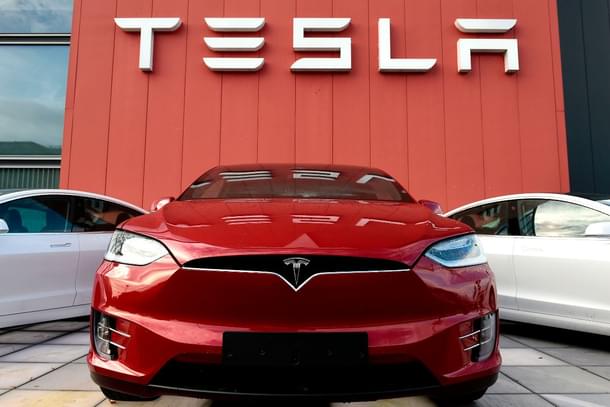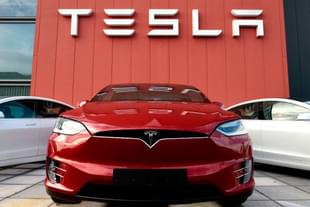Economy
Revving Up EV Manufacturing: New Delhi Plans Second Round Of Talks Amid Tepid Industry Response
Swarajya Staff
Nov 11, 2024, 01:34 PM | Updated 01:34 PM IST
Save & read from anywhere!
Bookmark stories for easy access on any device or the Swarajya app.


With major automakers showing only lukewarm interest in the Centre's new EV scheme, the government is preparing to hold a second round of consultations with stakeholders to invigorate the initiative.
On 15 March 2024, the Centre rolled out the Scheme to Promote Manufacturing of Electric Passenger Cars in India (SPMEPCI) to establish India as a manufacturing hub for electric vehicles (EVs).
The scheme broadly cleared the path for global EV makers like Tesla and Chinese EV manufacturer BYD to enter the Indian market.
However, despite the government’s push, only a handful of companies have expressed willingness to invest under the scheme, prompting the need for further deliberations to ascertain the reasons, including whether additional incentives are needed.
"A workshop on SPMEPCI is scheduled for later this month. It will help companies better understand the scheme," a senior official told ET.
Feedback gathered during the workshop will be instrumental in framing the rules governing the scheme, which are still in development. This workshop will mark the second round of consultations with industry stakeholders.
Following the scheme's launch, the Ministry of Heavy Industries (MHI) held its first stakeholder consultation in April this year.
The meeting was attended by prominent Original Equipment Manufacturers (OEMs), including global giants such as VinFast, Mercedes-Benz, BMW, Kia, Volkswagen, Toyota, Hyundai, and Renault-Nissan, alongside representatives from Tesla. Indian automakers Tata Motors, Maruti Suzuki, and Mahindra & Mahindra were also in attendance.
Tesla's interests were represented by Washington-headquartered The Asia Group (TAG), which specializes in strategic and business advisory services.
A Much-Needed Boost
As the world’s third-largest automotive market, India has a unique opportunity to lead the global shift from conventional internal combustion engine (ICE) powertrains to cleaner, more efficient EV technology.
With EVs expected to become a major segment within the automotive sector, the Centre has introduced a policy specifically designed to promote the growth of the EV manufacturing industry.
Under this new policy, customs duties on importing electric cars as completely knocked down (CKD) kits have been reduced from 70 per cent to 15 per cent for five years, applicable to vehicles with a minimum cost, insurance, and freight (CIF) value of $35,000 or more.
The maximum number of EVs allowed to be imported at this reduced duty rate is capped at 8,000 units per year. However, it does permit the carryover of unutilized annual quotas to the next year.
This duty reduction is reserved for automakers that commit to investing at least $500 million (Rs. 4,150 crore) and set up an EV manufacturing facility in India within three years of receiving approval from the Ministry of Heavy Industries.
Additionally, the policy mandates that qualifying automakers achieve a 25 percent domestic value addition (DVA) rate by the third year of production and reach a 50 percent DVA rate within five years.
The Promise
The new policy is widely viewed as the outcome of extensive negotiations between the Indian government and Tesla. For at least five years, Elon Musk-led EV manufacturer has postponed its entry into the Indian market, deterred by import duties as high as 100 per cent on completely built units (CBUs) priced at $40,000 or more.
Setting up a Tesla manufacturing facility could mark a transformative moment for India’s auto industry, similar to the "Apple moment" seen in electronics.
This tariff relief aligns with the government’s approach of attracting iconic global brands as industry leaders, as seen with Apple in electronics, Micron in semiconductors, and Tesla in EVs.
With Elon Musk likely to play a prominent role in the incoming U.S. administration of President-elect Donald Trump, the Centre is moving decisively to create a favorable environment for Tesla and other high-profile EV manufacturers.





